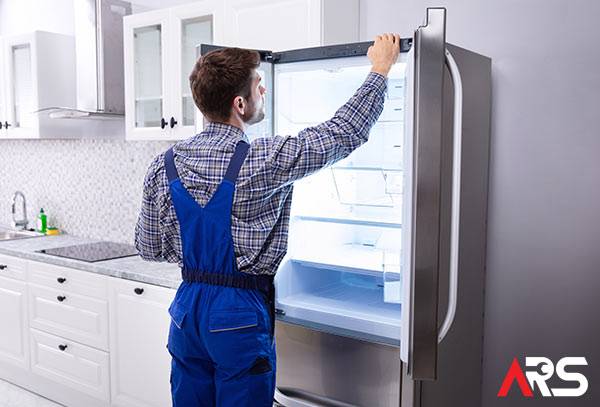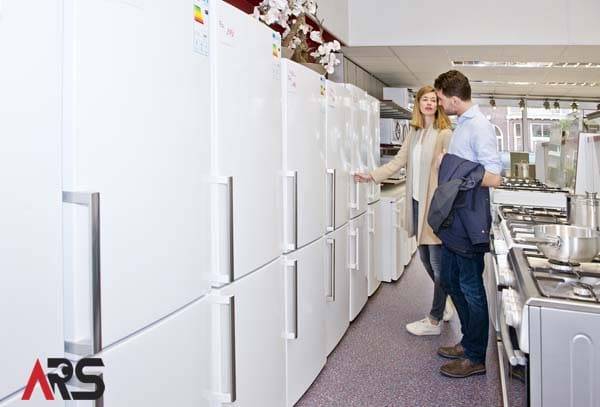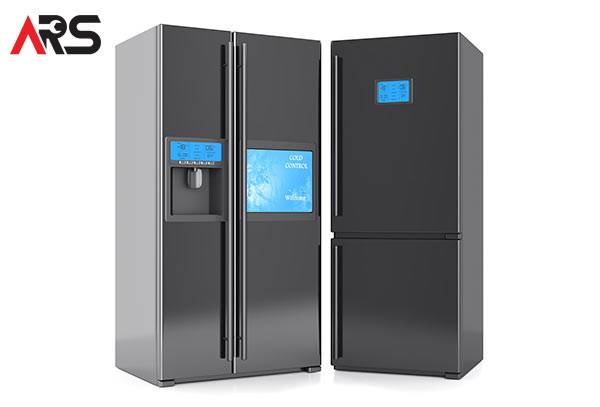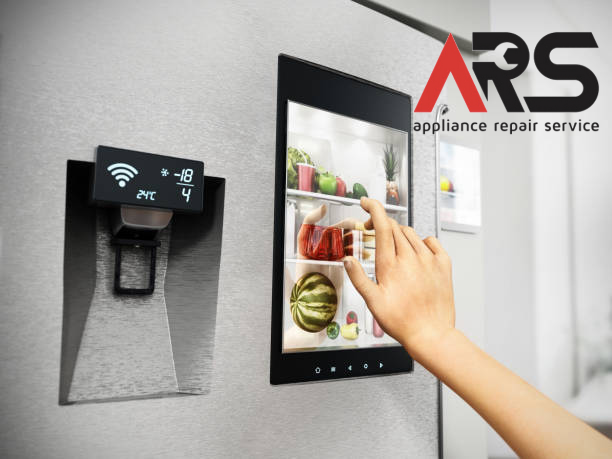
Refrigerator problems every homeowner should know
Refrigerators are the backbone of every kitchen. They run constantly for years, so wear is inevitable. From Whirlpool French door refrigerators to Samsung smart fridges and dependable Kenmore top-freezers, even the most reliable models can develop faults. In 2025, the most common refrigerator problems we see across Ontario range from minor leaks to major cooling failures.
The good news is that many of these issues can be prevented or minimized with the right care. Below are the seven most common fridge issues, the warning signs to watch for, and what you can do to keep your appliance working efficiently.
1. Compressor Failure
The compressor pressurizes the refrigerant and drives the cooling cycle. If it fails, the refrigerator cannot maintain temperature.
Most common in: older LG, Samsung, and Maytag models that have run for many years under heavy demand.
Causes: dirty condenser coils that trap heat, low refrigerant that forces overwork, and internal wear over time.
Symptoms: refrigerator running but not cooling, pronounced buzzing or clicking, and food spoiling quickly.
Why it matters: compressors are one of the most expensive components to replace. For premium units like Sub-Zero, repair is often cost-effective. For budget models, replacement may be the better value.
Learn how we handle this repair on our refrigerator repair service page.
2. Evaporator Fan Motor Failure
The evaporator fan circulates cold air from the freezer to the fresh food section. When the fan or its bearings fail, cooling becomes uneven and frost can develop.
Most common in: GE and Frigidaire refrigerators that show bearing wear or blade damage after years of use.
Signs of trouble: rattling or grinding from the freezer area, warm spots in the fridge, and frost on the rear panel.
Why it matters: restricted airflow forces the compressor to run longer, which shortens its lifespan and increases energy use.
3. Faulty Thermostat
The thermostat signals the compressor and fans to cycle on and off. A faulty sensor or control can cause constant running or no cooling at all.
Most common in: Kenmore, KitchenAid, and Bosch refrigerators with aging thermostats or electronic control issues.
Symptoms: refrigerator running nonstop, food freezing in the fresh food compartment, and temperature swings despite correct settings.
Why it matters: inconsistent cooling affects food safety and can trigger frost or condensation in areas where it should not form.
4. Clogged Defrost Drain
The defrost system melts frost from the coils and directs water to a drain pan. When the drain line clogs with debris or ice, water pools inside the appliance or leaks onto the floor.
Most common in: Whirlpool and KitchenAid side-by-side units where small food particles or ice restrict the line.
Warning signs: puddles at the bottom of the fridge, frost along the freezer floor, and musty odors from standing water.
Why it matters: moisture damages shelves and encourages mold growth. Clearing the line restores proper drainage and hygiene.
For additional troubleshooting, see our related guide: Common Problems for a Refrigerator Not Working.
5. Damaged Door Seals (Gaskets)
Door gaskets create the airtight seal that keeps cold air in and warm air out. When gaskets crack or deform, efficiency drops and the compressor works harder.
Most common in: heavy-door Sub-Zero units and older Frigidaire models with worn gaskets.
Symptoms: rising electricity bills, moisture around the door frame, and cool air felt at the edges when closed.
Why it matters: small leaks add up to significant energy loss. Replacing gaskets is a simple, cost-effective fix that protects the compressor and lowers bills.
6. Refrigerator Not Cooling Properly
This broad issue shows up across every brand. The unit runs but fails to hold safe temperatures in the fresh food or freezer sections.
Common across all brands, and often reported on Samsung and LG models with sensor or control board faults.
Causes: weak compressor output, failed fan, faulty thermostat, or blocked condenser coils that cannot shed heat.
Symptoms: refrigerator section warmer than 4°C, soft ice cream or thawing food in the freezer, and faster spoilage.
Why it matters: poor cooling risks food safety and can cascade into more expensive failures if not corrected promptly.
7. Refrigerator Making Loud Noises
Quiet humming is normal. Loud or persistent noises usually indicate a failing part or loose hardware that needs attention.
Most common in: Frigidaire, GE, and Whirlpool refrigerators where fan motors or compressors develop wear.
Typical causes: worn evaporator or condenser fan, vibrating components, or a failing compressor that clicks or buzzes during start-up.
What to listen for: grinding or knocking from the freezer area, buzzing at the rear of the cabinet, and repeated clicking when cooling cycles begin.
Why it matters: noise often signals stress on key parts that, if ignored, can lead to higher costs and unexpected downtime.
Preventing Refrigerator Problems
Most common fridge problems can be prevented with simple, routine care. Clean condenser coils every six months, inspect and replace worn door gaskets, keep fresh food temperatures between 2°C and 4°C, avoid overstuffing shelves to maintain airflow, and replace water filters on schedule if your unit has a dispenser.
These habits improve energy efficiency, reduce repair costs, and extend the life of your refrigerator.
When to Call a Professional
Repairs like compressor replacement, sealed system work, or electronic control diagnosis require specialized tools and training. DIY attempts can make matters worse or create safety risks.
ARS Appliances Repair Service provides reliable appliance repair services across Toronto, the GTA, and Ontario. We work with all major brands, including Whirlpool, Samsung, LG, GE, Frigidaire, Kenmore, Maytag, KitchenAid, Bosch, and Sub-Zero.
Final Thoughts
From compressor failures to noisy fans, the most common refrigerator problems have clear warning signs. Address issues early to protect food safety, lower energy bills, and extend the life of your appliance. When problems arise, trust ARS Appliances Repair Service to keep your fridge running smoothly.
For safe food storage recommendations, review the CDC’s refrigerator guidelines, and see Health Canada’s safe food storage tips.
Refrigerator FAQs
Why is my refrigerator not cooling?
Common causes include dirty condenser coils, a failing evaporator fan, a faulty thermostat, or a weak compressor. Start by cleaning the coils and checking that the fans are running.
What is the most common refrigerator problem?
Insufficient cooling and temperature fluctuations are the most common, often linked to airflow restrictions, thermostat issues, or dirty coils.
How do I know if my compressor is bad?
Signs include loud buzzing or clicking, warm temperatures despite the unit running, and spoiled food. A technician can test compressor amperage and system pressures.
Why is my fridge leaking water inside?
A clogged defrost drain is the most likely reason. Ice or debris blocks the drain line and water collects in the fridge instead of draining to the pan.
How often should I clean the condenser coils?
Every six months is a good baseline. Homes with pets or high dust may benefit from quarterly cleaning.
Are certain brands more prone to compressor issues?
Older LG, Samsung, and Maytag models are more frequently reported for compressor wear after many years of service, although any brand can experience failures over time.
When should I call a professional for fridge repair?
Call a technician if the fridge is not cooling, is making loud or unusual noises, trips breakers, shows error codes, or leaks after basic cleaning.
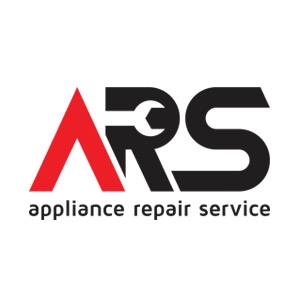
ARS Appliance Repair Service has been trusted across Toronto, Ottawa, and Southern Ontario for over a decade. Our licensed, manufacturer-authorized technicians specialize in repairing all major household and commercial appliances with genuine parts and warranty-backed service. From refrigerators and washers to ovens, dishwashers, and more, we restore appliances quickly, professionally, and correctly the first time, earning the confidence of homeowners and businesses throughout the region.

